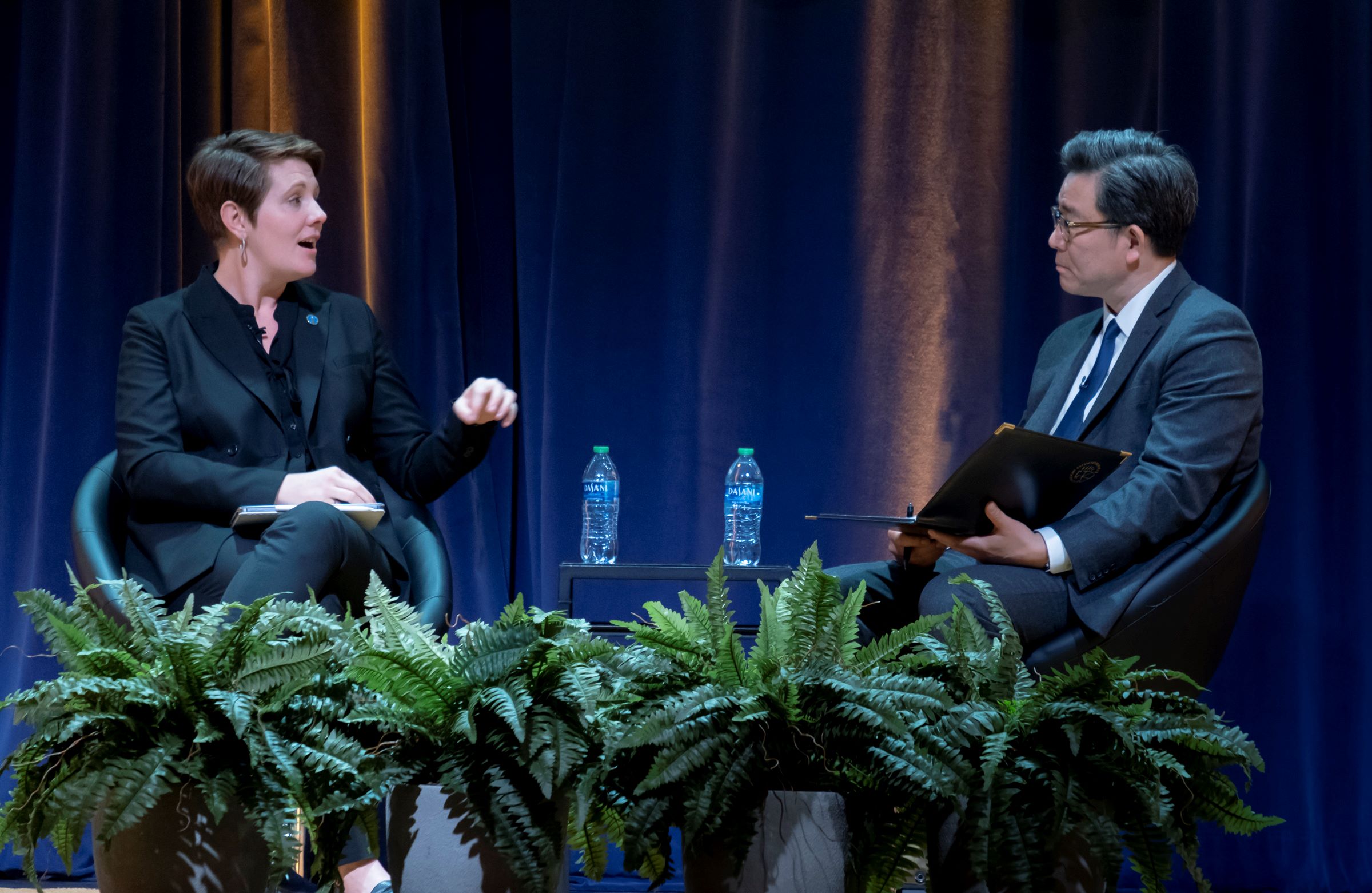Duke Energy SMR Nuclear STudy

Exploring a giant leap towards zero emissions
Purdue University and Duke Energy are jointly exploring the feasibility of using advanced nuclear energy to meet the West Lafayette campus community’s long-term energy needs.
The study is focused on whether power produced through Small Modular Reactors (SMRs) could be a potential fit for Purdue’s energy needs. Significantly smaller than traditional nuclear power plants, an SMR could meet current and future needs for Purdue’s West Lafayette campus as well as provide excess power to the state’s electric grid.
Featured Story
Latest
‘Understanding Tomorrow’s Nuclear Energy’ lecture series to begin Aug. 30
August 4, 2022
Purdue and Duke Energy advance nuclear power exploration with public lecture series, executive advisory group
June 24, 2022
Purdue and Duke Energy to explore potential for clean, nuclear power source for campus
April 27, 2022
Understanding Tomorrow’s Nuclear Energy Lecture Series
Purdue University and Duke Energy are jointly exploring the feasibility of using advanced nuclear energy to meet the West Lafayette campus long-term energy needs. The Understanding Tomorrow’s Nuclear Energy lecture series ran from August 2022 through February 2023 and was designed for all audiences from industry experts to community members. Links to lecture summaries and videos are available below.
Questions about the lecture series may be directed to SMRStudy@purdue.edu.
Interim Report
The Purdue University and Duke Energy feasibility study was announced in April 2022. The interim report, released in May 2023, culminates hundreds of hours of research and evaluation from world-renowned leaders and industry experts.
To date, the study revealed several findings – spurring questions about the future of clean energy and recommendations for how to advance new nuclear development in the 2030s and beyond.
No technology has been selected, and no decision to build a new plant has been made. However, to further evaluate the viability of small modular reactors for the university and the State of Indiana, Purdue University and Duke Energy will work together on the next steps outlined in the interim report.
Committees
An executive advisory committee was formed and met frequently over the course of the study to provide guidance and recommendations to Purdue and Duke Energy on three key fronts: safety, regulatory processes and research.
The executive advisory committee consists of the following expert leaders from the public and private sectors:
Executive Advisory Committee
- Mung Chiang, Purdue University president
- Arden Bement, Purdue’s David A. Ross Distinguished Professor Emeritus of Nuclear Engineering
- William Dudley Jr., Bechtel Group vice chairman and former CEO
- Carlos Hernandez, former CEO, Fluor Corp.
- Maria Korsnick, Nuclear Energy Institute president and CEO
- William D. Magwood, IV, Nuclear Energy Agency Director-General
- Stan Pinegar, Duke Energy state president, Indiana
- Luis Reyes, former executive, U.S. Nuclear Regulatory Commission
Additionally, three principals in charge were appointed to ensure the successful execution of the study:
Principals
- Michael B. Cline, senior vice president of administrative operations at Purdue
- Seungjin Kim, the Capt. James F. McCarthy Jr. and Cheryl E. McCarthy Head and Professor of Nuclear Engineering at Purdue
- Chris Nolan, vice president of new nuclear generation at Duke Energy
The principals in charge were supported by a utility technical group — consisting of operational leaders from Purdue and Duke Energy — and a nuclear technical advisory group — consisting of technical specialists in nuclear energy from Purdue and the private sector.
Other subject matter experts in decarbonization and renewable energy were consulted as needed throughout the course of the study.







